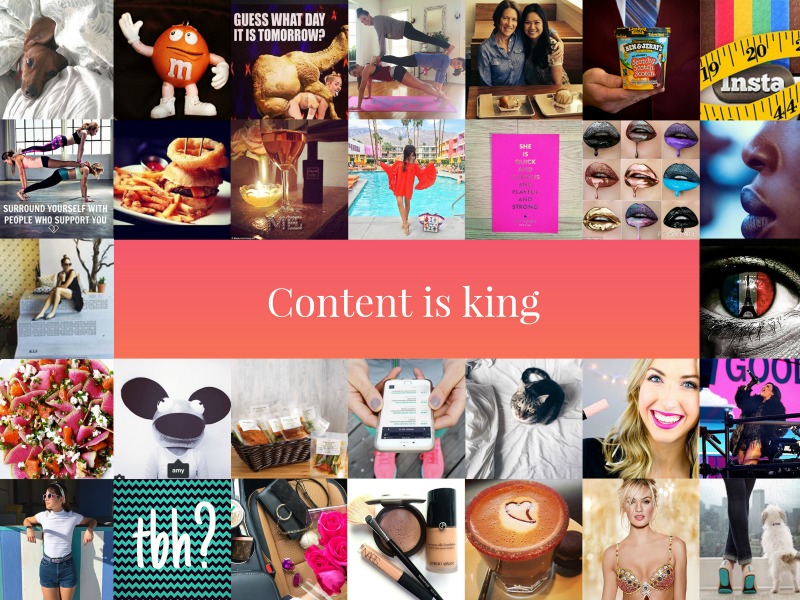Holmes Report 25 Oct 2016 // 3:41PM GMT

MIAM—It’s 20 years now since Bill Gates asserted that “content is king,” and it appears that most marketers have come around to his way of thinking—perhaps to the point that too much content is being produced to too little effect. That’s one finding of research conducted by DeVries Global that provides the foundation for an upcoming session at PRovoke16, the fifth Global Public Relations Summit.
More often than not, today’s consumers think the emperor has no clothes when it comes to content. We live in a world where brand influence is diminishing, underscored by the fact that 66 percent of consumers wouldn’t care if a majority of brands were wiped off the face of earth. Branded social media content is becoming so ubiquitous and homogenous that more than 50 percent of consumers struggle to distinguish one brand’s content from another’s.
The DeVries Global Brandbiguity Report shows that 54 percent of those surveyed believe brands are posting content for content’s sake, and that this trend is alienating consumers who see brands through the social media lens as “interrupting, uninteresting and more of the same” in their communications. Instead of building meaningful relationships, this content overload is causing consumers to fall out of love with brands with nearly half (44 percent) of those surveyed having unfollowed a brand on social media in the past year.
“Marketers are falling victim to Brandbiguity, a crisis of brand distinction and conviction in which brands look and feel the same to consumers,” said Heidi Hovland, chief executive officer of DeVries Global. “To reach a public that participates in and consumes social media 24/7, brands feel pressured to create content at the same frenetic pace in hopes of staying current and relevant with audiences. Marketers are caught up in ‘Fear of Missing Out’ (FOMO), a constant chase to associate with every trending topic, which may be the undoing of much of their equity-building investments. Brands are talking to each other instead of engaging with consumers in meaningful ways.”
Exploring what makes content work, consumers were shown 25 social media executions by five brands, and were asked to score each for its overall impact, look, language and relevance of message. The hair and personal care industry was selected for the pilot because it is an intensely competitive space, one in which top trends drive the conversation. Results showed that even the leading brands struggle to differentiate and build connections with their audiences.
“A Brand Imprint lies at the intersection of a clear point of view – what a brand advocates for or against in the world – and distinctive brand presence – a recognizable and relevant look, language and behavior to support the value-driven narrative that leaves a meaningful and enduring mark on culture and consumers,” says Loretta Markevics, Global Managing Director of Creative Intelligence at DeVries Global. “Our research shows that the cumulative power of content rooted in distinction, relevance, engagement and shareability earns high scores from consumers but adding a clear point of view (purpose) moves brands to the highest level.”
Markevics notes the urgency for brands to take stock of what is occurring in social media and the expectations consumers have for them as the foundation for social programs that are original, thought-provoking and purposeful. “Consumers today are smart and savvy, and they’re telling us they expect more from brands who want their attention and loyalty,” she adds. “They expect to be offered something that’s authentic to the specific brand and presents real value to the customer.”
Other report findings:
- While more than half of consumers (54 percent) say they have an interest in sales and discounts, they expect brands to have a point of view. Sixty-five percent say if brands want to engage them, they must present a story that interests and speaks to them.
- Fifty-five percent say social media should have a unique appeal from TV and print media.
- Only one-fifth see brands as improving their quality of life.
- Gen-Xers and Millennials layer on a desire for brands to bring content that is relevant to their lives, distinctive in appeal and fitting to the way they think of a company and its products. They want content that is engaging, shareable and connected to a higher purpose that brings satisfaction and value to the relationship.
- Seventy percent of Millennials have fallen out of love with a brand in the past year with 54 percent going so far as to unfollow a brand on social media.


































.jpg)

















